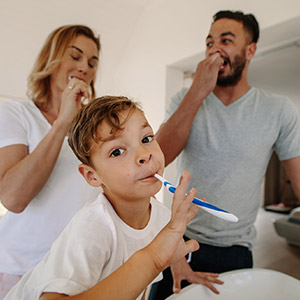Problems Sleeping?
Are you frequently feeling drowsy during the day without any explanation? Do you snore loudly or wake up breathless in the middle of the night? If you’re experiencing any of these symptoms, you might be one of the more than 12 million Americans affected by sleep apnea.
Sleep Apnea FAQs
WHAT ARE THE SIGNS OF SLEEP APNEA?
If you notice any of the following symptoms, it could indicate the presence of sleep apnea, and we encourage you to contact our practice for evaluation:
- Insomnia or difficulty falling and staying asleep
- Loud snoring during the night
- Waking up abruptly, gasping, or feeling short of breath
- Making snorting or choking sounds during sleep, indicating a restart of breathing
- Morning headaches
- Unintentionally falling asleep during the day
- Experiencing extreme drowsiness or fatigue throughout the day
ARE THERE DIFFERENT TYPES OF SLEEP APNEA?
Sleep apnea is classified into three categories. The most prevalent form is obstructive sleep apnea (OSA), which occurs due to a physical blockage, typically caused by the soft tissue collapsing at the back of the throat. Central sleep apnea (CSA) is less common and arises from a lack of proper signals sent by the brain to the muscles responsible for breathing. Additionally, some individuals may experience “mixed” or “complex” sleep apnea, which is a combination of both obstructive and central sleep apnea.
WHAT ARE THE RISK FACTORS FOR SLEEP APNEA?
While obstructive sleep apnea is more common in males and older adults (40+), anyone, regardless of age or gender, can be affected. Other risk factors include obesity, smoking, alcohol consumption, the use of sedatives or tranquilizers, and a family history of sleep apnea. Central sleep apnea is more likely to occur in individuals with heart disorders, neuromuscular disorders, strokes, or brain tumors.
IS SLEEP APNEA DANGEROUS?
Sleep apnea is a serious medical condition, and if left untreated, it can lead to high blood pressure, increasing the risk of heart failure and stroke. The persistent fatigue caused by sleep apnea can result in difficulties at work or school, and it poses dangers while driving or operating heavy machinery. Additionally, sleep apnea can complicate medical treatments or surgeries, as sedation by anesthesia and lying flat after an operation can be risky. If you suspect sleep apnea, it’s crucial to inform your family doctor before taking any prescribed medications or undergoing surgery.
HOW IS SLEEP APNEA TREATED?
Treatment for sleep apnea varies based on its severity and type. Behavioral changes, such as weight loss, smoking cessation, or altering sleep positions, can be effective for some patients. Oral devices that position the mouth to prevent throat blockage are also utilized in some cases. For more severe instances, surgical intervention may be recommended.
WHAT SHOULD I DO IF I SUSPECT THAT SOMEONE IN MY FAMILY SUFFERS FROM SLEEP APNEA?
If you suspect that someone in your family may be suffering from sleep apnea, don’t hesitate to contact our practice. Depending on the situation, a custom oral device may be recommended as part of the treatment plan. Taking action can make a significant difference in improving the quality of life for individuals with sleep apnea.


Schedule Your Next Appointment
If you believe you’ve been suffering from sleep apnea, contact our office to schedule an appointment. We will help you find solutions to your symptoms and get you back to sleeping well!










